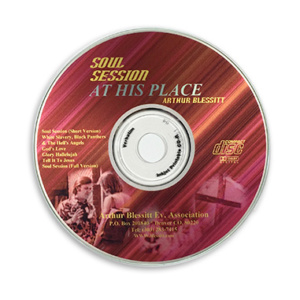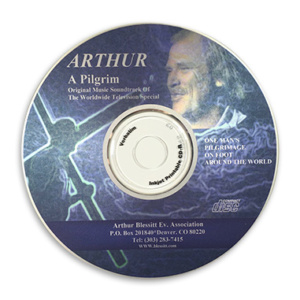*Warning read this at your own risk*
Matthew 5:27-30
“You have heard that it was said to those of old,
‘You shall not commit adultery.’
“But I say to you that whoever looks at a woman to lust for her has already committed adultery with her in his heart.
“If your right eye causes you to sin, pluck it out and cast it from you; for it is more profitable for you that one of your members perish, than for your whole body to be cast into hell. “And if your right hand causes you to sin, cut it off and cast it from you; for it is more profitable for you that one of your members perish, than for your whole body to be cast into hell.
The question is: is ‘lust’ adultery?
To get to the answer we must look at the Greek meaning of these words.
Consider the word Jesus uses ‘whoever looks’ in Greek:
BEHOLD, BEHELD
2. blepo ^991^ is also used of (a) bodily and (b) mental vision, (a)
“to perceive,” e. g.,
(from Vine’s Expository Dictionary of Biblical Words)
(Copyright (C) 1985, Thomas Nelson Publishers)
Consider the word Jesus uses ‘Woman’ in Greek:
1. gune ^1135^ denotes (1) “a woman, married or unmarried” (see WOMAN); (2) “a wife,” e. g.,
(from Vine’s Expository Dictionary of Biblical Words)
(Copyright (C) 1985, Thomas Nelson Publishers)
Consider the word Jesus uses ‘Lust’ in Greek:
COVET, COVETOUS, COVETOUSNESS
1. epithumeo ^1937^, “to fix the desire upon” (epi, “upon,” used intensively, thumos, “passion”), whether things good or bad; hence, “to long for, lust after, covet,” is used with the meaning “to covet evilly” in
(from Vine’s Expository Dictionary of Biblical Words)
(Copyright (C) 1985, Thomas Nelson Publishers)
Consider the word Jesus uses ‘Heart’ in Greek:
HEART, HEARTILY
kardia ^2588^, “the heart” (Eng., “cardiac,” etc.), the chief organ of physical life (“for the life of the flesh is in the blood,”
As to its usage in the NT it denotes (a) the seat of physical life,
seat of moral nature and spiritual life, the seat of grief,
The heart, in its moral significance in the OT, includes the emotions, the reason and the will.
(from Vine’s Expository Dictionary of Biblical Words)
(Copyright (C) 1985, Thomas Nelson Publishers)
Consider the word Jesus uses ‘already’ in Greek:
ALREADY
ede ^2235^ is always used of time in the NT and means
“now, at (or by) this time,” sometimes in the sense of “already,” i. e.,
without mentioning or insisting upon anything further, e. g., <1 Tim. 5:15>. In <1 Cor. 4:8> and <1 John 2:8>, the
(from Vine’s Expository Dictionary of Biblical Words)
(Copyright (C) 1985, Thomas Nelson Publishers)
I trust you have read the Words of Jesus and then read what the words mean in Greek.
‘You shall not commit adultery.’
“But I say to you that whoever looks at a woman to lust for her has already committed adultery with her in his heart.
Adultery in the Old Testament was mostly used in reference to sexual intercourse with a married person. Jesus expanded the meaning to any person (woman).
Let me comment this way:
You have heard it said of old ‘you shall not commit adultery’
But I say to you that whoever
Looks
(has a mental vision, “to perceive,” “is beholding”)
at a woman
(“a woman, married or unmarried”)
to lust for her
(“to fix the desire upon”
“passion for”
“to long for, lust after, covet,”)
has already
(“now, at (or by) this time,”
“already,”
without mentioning or insisting upon anything further)
committed adultery with her
has had sexual intercourse with her
in his heart
(in the center of man’s inward life the hidden man the real man the true character but conceals it)
Matthew 15:17-20
“Do you not yet understand that whatever enters the mouth goes into the stomach
and is eliminated?
“But those things which proceed out of the mouth come from the heart,
and they defile a man.
“For out of the heart proceed evil thoughts, murders, adulteries, fornication, thefts, false witness, blasphemies.
“These are the things which defile a man’¦
Jesus is teaching that the outward actions of a person often do not reflect what is in the heart. Jesus declares that it is what is in the heart that truly matters. It is that which is within that God sees. The heart reflects to God the good and the evil.
Now having heard the Words of Jesus about what Adultery is and that it is in the heart. I ask you who often judge others and speak of the ‘fallen ministers’ and others. What about YOU! Are you ‘pure of heart’ never having lust in your heart for another person in your desire or imagination?
Now if you or I have committed adultery in the heart and not followed through with physical intercourse are you less a sinner than someone who has had physical sexual relations with another outside of marriage?
Jesus did not seem to think so. As a matter of fact Jesus was clear about it. He pointed it out.
Most of the fifth chapter of Matthew is dealing with religious people who think they are righteous and obey the law. But Jesus is showing that hate is murder, greed is a thief and lust is adultery!
Now consider this. All the teachings of Jesus and the New Testament and the Bible that deal with adultery applies to YOU and Me who are adulterers because of lust in the heart.
That is why when the religious were going to stone the woman caught in adultery Jesus said:
“He who is without sin among you, let him throw a stone at her first.”
John 8:7
As Jesus sees things there are few among us who are not adulterers!
You may sit back in self righteousness and say ‘but I never did it for real’. I am better than those that did. Well, I ask what scripture do you use to show this?
Here is how serious Jesus considered the matter of lust being adultery:
“If your right eye causes you to sin, pluck it out and cast it from you; for it is more profitable for you that one of your members perish, than for your whole body to be cast into hell.
“And if your right hand causes you to sin, cut it off and cast it from you; for it is more profitable for you that one of your members perish, than for your whole body to be cast into hell.
Thanks you Jesus for loving us and offering salvation and a new life and the Power of the Holy Spirit to give us a new heart and mind.
These Words of Jesus are to given to condemn but to expose our hearts and help us to see what sinners we are and realize the need of the Blood of Jesus and the Cross.
So be very, very, very, very careful how you judge others for
Jesus said: “For with what judgment you judge, you will be judged;
and with the measure you use, it will be measured back to you.
Matthew 7:2
I think its time to pray!
Pilgrim followers of Jesus,
Arthur and Denise Blessitt
Luke 18:1









